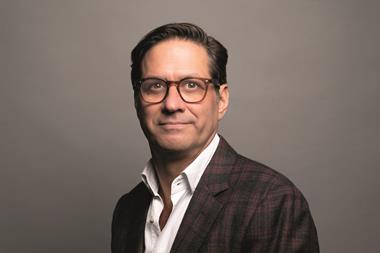GLOBAL - Internos chief executive Andrew Thornton recently criticised institutional investors who claim the fund management model is broken, yet continue to solicit third-party capital to set up precisely such structures. Does he have a point?
The issue has arisen out of vintage disillusion. The non-fund model emerged after 2008, when some investors lost faith in the commingled funds and their managers.
According to David Brown, partner in the real estate tax group at Deloitte, somewhere between funds with a manager with full or partial discretion and smaller club-type deals is another option - sovereign wealth funds, insurers and pension funds coming together without significant surrender of control. The result will look very much like a fund - it will probably have the same legal structure - but it will be a joint venture vehicle.
"It will look the same but feel very different," Brown says.
An alternative is for pension schemes to invite other investors to join existing funds. You can see why pension fund managers might spot an opportunity. Karen Huizer, investor relations manager at €5.1bn BouwInvest, the real estate manager of the Dutch bpfBOUW pension fund, believes the experience managing funds involving external investors will make them better at it. BouwInvest announced last June that it would open access to its €4bn domestic real estate portfolio in order to increase its global weighting.
"On the one hand, the bpfBOUW pension fund wants to have more flexibility to diversify its real estate portfolio - to get more international and more commercial real estate," she says. "On the other hand, Bouwinvest has the ambition to grow as real estate investment manager. By offering real estate funds to other - foreign - investors Bouwinvest will grow and professionalise further."
Arguably, investors are alert to co-investors sharing the same goals. BouwInvest's products are focused on low-risk core properties with low voids and no leverage, and they come with seeded portfolios and a low risk profile. "Core properties have done relatively well, and will do so in the future. This offers a good match for pension fund investments, which have a defensive profile," says Huizer.
At the administrative level, too, BouwInvest has ticked the boxes most often cited by investors: transparency in communication and reporting, and governance. It has hived off some of what would be the fund manager's functions to an investor relations department headed by Huizer, including marketing to potential investors and capital-raising.
Brown contrasts boutique fund managers and life insurers, such as Standard Life Investments and Aviva, with investment management arms. One of the main differences, he says, is that insurers opening will put in more seed capital and are likely to have a larger share in the fund. In other words, the co-investment will be larger if the fund organiser is a pension fund or insurer.
"Alignment is a big theme but it would be a mistake to confuse the size of the contribution to the fund with alignment," says Brown. In fact, he says, boutique fund managers may be more likely to closely link reward and performance because they have no other sources of income - no insurance premiums or pension capital to fall back on.
In his criticism, Thornton distinguished between club-deal originators and fund model replicators, but the distinction is not necessarily that clear-cut. According to John Forbes, partner at PwC, investors engaged in joint ventures and club deals blur the boundaries between pooled funds and segregated accounts. It is not that fund managers are doing anything different: Forbes points to many of them managing both funds and alternative deal structures.
Over the next 12-18 months, Brown predicts that real estate fund managers with a track record will be out fundraising. The best fund managers will still be able to raise capital. Those investors are less sure of will find it harder. "The very biggest investors have taken themselves out of the fund game altogether," he says.
But, according to Forbes, pension funds are reaching the point where they are beginning to decide what they will do. Some will return to funds; others will not.
The result will be two simultaneous but divergent trends. On the one hand, managers with solid track records and a product investors want to be in will be able to raise commingled funds. "Investors who want a part of it will simply have to accept the model," says Forbes. "Other fund managers will be consolidated out of existence."
But there is a second direction. In addition to segregated accounts, joint ventures and club deals, there will emerge more innovative products, such as debt funds targeting DC pension scheme cash.
"The common theme is that investors are more demanding but existing managers will be doing something new," he says. "Even if they have legacy issues, mitigating them will depend on how good the offering is."
He adds: "People have a remarkable capacity to reinvent themselves. Old players will just become new players with more innovative products."


















